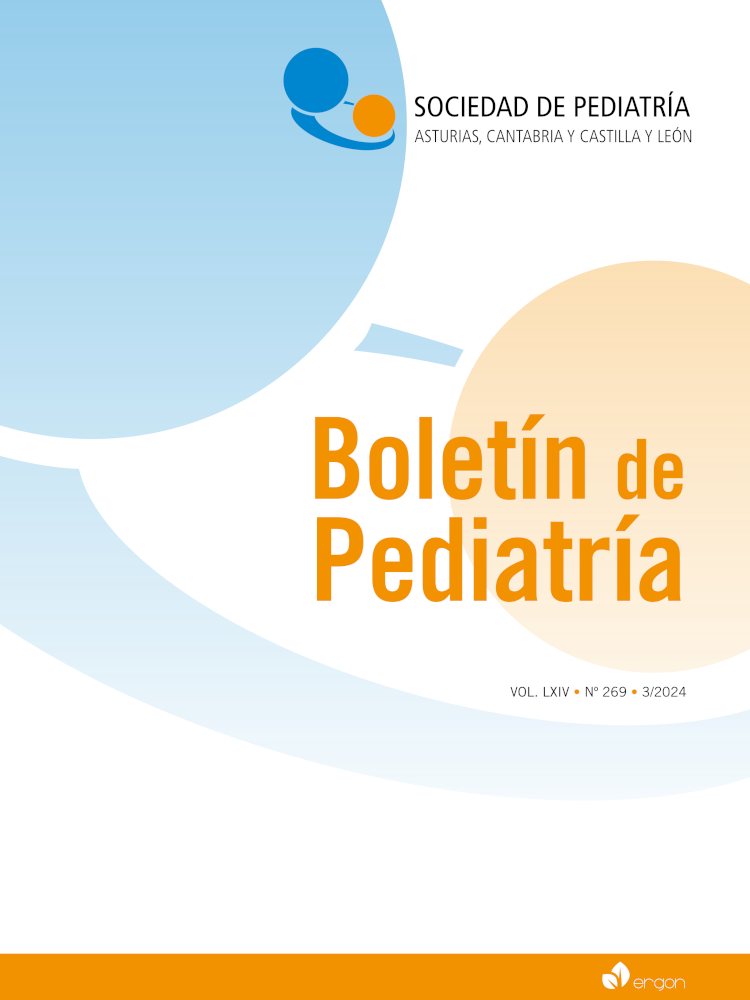Abstract
The differential diagnosis of paroxysmal non-epileptic disorders (NEPD) in early childhood can be a challenge in the daily consults. Having knowledge of these episodes is extremely profitable for our clinical practice. In this review, some of the most frequent paroxysmal disorders that occur during the day, as well as others having special interest due to their long-term implications, have been summarized.
References
Visser AM, Jaddoe VW, Arends LR, Tiemeier H, Hofman A, Moll HA, et al. Paroxysmal disorders in infancy and their risk factors in a population-based cohort: the Generation R Study. Dev Med Child Neurol. 2010; 52(11): 1014-20 . https://doi.org/10.1111/j.1469-8749.2010.03689.x
Nagy E, Hollody K. Paroxysmal non-epileptic events in infancy: five cases with typical features. Epileptic Disord. 2019; 21(5):458-62. https://doi.org/10.1684/epd.2019.1098
Juarez-Garcia A, Stokes T, Shaw B, Camosso-Stefinovic J, Baker R. The costs of epilepsy misdiagnosis in England and Wales. Seizure. 2006; 15(8): 598-605. https://doi.org/10.1016/j.seizure.2006.08.005
Leibetseder A, Eisermann M, LaFrance WC Jr, Nobili L, von Oertzen TJ. How to distinguish seizures from non-epileptic manifestations. Epileptic Disord. 2020; 22(6): 716-38. https://doi.org/10.1684/epd.2020.1234
Chen L, Knight EM, Tuxhorn I, Shahid A, Lüders HO. Paroxysmal non-epileptic events in infants and toddlers: A phenomenologic analysis. Psychiatry Clin Neurosci. 2015; 69(6): 351-9. https://doi.org/10.1111/pcn.12245
Campistol Plana J. Trastornos paroxísticos no epilépticos en la infancia. Pediatr Integral. 2015; XIX(9): 622-31.
Flodine TE, Shah M, Mendez MD. Breath-holding spells. En: StatPearls [Internet]. Treasure Island (FL): StatPearls Publishing; 2023 Jan. PMID: 30969604.
Caraballo RH, Capovilla G, Vigevano F, Beccaria F, Specchio N, Fejerman N. The spectrum of benign myoclonus of early infancy: Clinical and neurophysiologic features in 102 patients. Epilepsia. 2009; 50(5): 1176-83. https://doi.org/10.1111/j.1528-1167.2008.01994.x
Patil S, Tas V. Sandifer syndrome. [Updated 2023 Jun 20]. En: StatPearls [Internet]. Treasure Island (FL): StatPearls Publishing; 2024 Jan. Disponible en: https://www.ncbi.nlm.nih.gov/books/NBK558906/
Mosca S, Martins J, Temudo T. Trastornos paroxísticos del movimiento de carácter benigno y transitorio en la infancia. Rev Neurol 2022; 74(04): 135-40. https://doi.org/10.33588/rn.7404.2021326
Bye AM, Kok DJ, Ferenschild FT, Vles JS. Paroxysmal nonepileptic events in children: a retrospective study over a period of 10 years. J Paediatr Child Health. 2000; 36(3): 244-8. https://doi.org/10.1046/j.1440-1754.2000.00496.x
Zhan FX, Wang SG, Cao L. Advances in hyperekplexia and other startle syndromes. Neurol Sci. 2021; 42(10): 4095-107. https://doi.org/10.1007/s10072-021-05493-8
Lagorio I, Brunelli L, Striano P. Paroxysmal nonepileptic events in children: A video gallery and a guide for differential diagnosis. Neurol Clin Pract. 2022; 12(4): 320-7. https://doi.org/10.1212/CPJ.0000000000001171
Quade A, Thiel A, Kurth I, Holtgrewe M, Elbracht M, Beule D, et al. Paroxysmal tonic upgaze: A heterogeneous clinical condition responsive to carbonic anhydrase inhibition. Eur J Paediatr Neurol. 2020; 25: 181-6. https://doi.org/10.1016/j.ejpn.2019.11.002
Barkoudah E. Encephalopathies. En: Kliegman RM, Geme JWS, editores. Nelson Textbook of Pediatrics, 22nd ed. Philadelphia: Elsevier; 2025. p. 3688-3711.e2.

This work is licensed under a Creative Commons Attribution-NonCommercial 4.0 International License.
Copyright (c) 2024 Boletín de Pediatría
